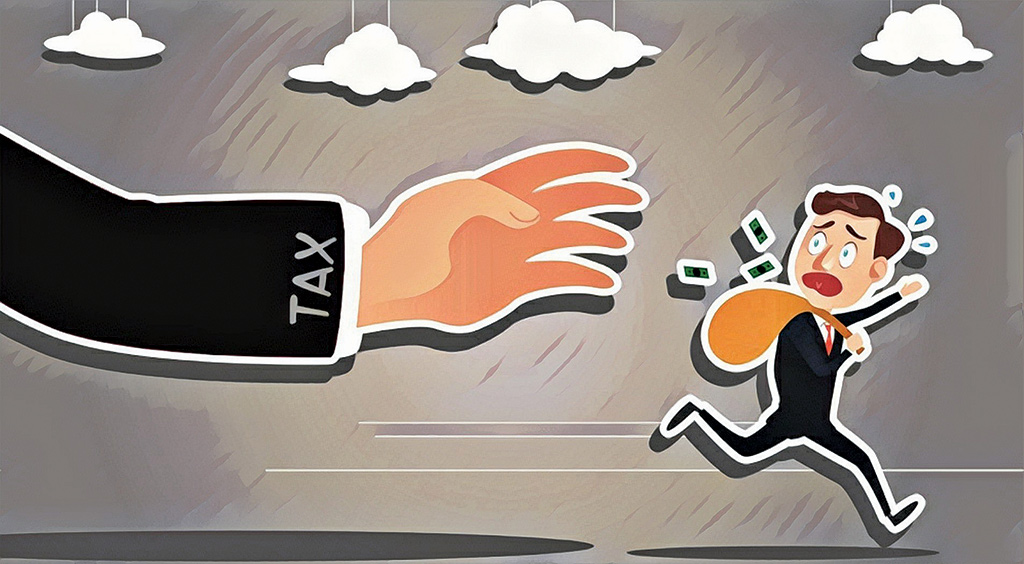
The Supreme Court has recently issued verdict in favour of the government on cases filed by business firms against the decision of the tax administration to recover tax and penalty stating that the firms were allegedly involved in tax evasion. Inland Revenue Department (IRD) was trying to recover Rs 6.59 billion from 518 firms found guilty from the rigorous investigation carried out by the tax administration. Some of the firms had knocked the door of the Court following the decision of the tax administration citing that they were penalised without any offence. However, the dispute between the tax administration and business firms allegedly involved in Value Added Tax (VAT) evasion through use of fake VAT bills is now over after the Supreme Court's verdict that took almost a decade of the serious investigation done by IRD.
Use of fake VAT bills was rampant at that time. Firms registered under VAT would show their expenses of goods and services purchased from the supplier and adjust their income tax accordingly. When the investigation team reached those suppliers, the firms were found to be bogus. In fact, they were formed to produce and issue fake VAT bills.
The tax administration identified serious threats to the revenue system. The government was losing VAT and income tax as firms would show high expenses while purchasing goods and services. The state treasury was hemorrhaging due to submission of low income tax.
Traders and industrialists are not liable to submit VAT until they sell goods and services because VAT is levied at the consumer end. Some traders have shown that they sold the goods to firms instead of to consumers. As VAT is taxed at the consumer end, they were not liable to submit VAT. But in reality goods were sold to consumers and VAT was also collected but not submitted citing that the goods were sold to firms which in reality did not exist. This is popularly known as mismatch in tax investigation.
Firms that have annual transaction of goods over Rs five million and Rs two million in services have to register under VAT. Compliance of VAT increased after the investigation of fake VAT bills. Almost all major corporate houses were allegedly involved in VAT fraud.
Laxman Aryal, Secretary of the National Planning Commission (NPC) and erstwhile leader of the investigation committee said that they have allocated the tax amount and penalty without terrorising the tax payers.
Most taxpayers agreed to pay the tax that was determined by the tax administration except a few who decided to challenge the decision in court. "But the court proved them guilty. It is a victory for the tax administration who launched the investigation very carefully and based it on evidence," he said adding, "Almost Rs 100 billion revenue increased in the national coffer automatically as taxpayers started to be more careful in tax filing."
Aryal further stated that while interacting with the top businessman of the country who were allegedly involved in tax evasion, they said they were not even aware about the fraud. The corruption was done by their accountants or the irregularities from their own machinery.
The IRD has started billing enforcement to track transactions of large tax payers. Taxpayers registered under VAT in the Large Tax Payers Office (LTO) are already connected to the central server of the IRD. The invoice generated by major taxpayers has started getting automatically uploaded to the central server of the tax administration. According to Binod Kunwar, Director General of IRD, the server connects hotels, automobile dealers, star hotels and major department stores in this system.
The Department of Revenue Investigation (DRI) has been investigating mismatch of transactions and filing cases. One multinational company operating in Nepal is defending their case in court. However, it is reported that the IRD has not been working seriously in mismatch cases as DRI under the Office of Prime Minister and Council of Ministers has been actively investigating mismatch cases which were practiced during the fake VAT bill investigation.
"IRD is more resourceful than DRI but it seems that the IRD has not been properly tracking the mismatch which has been proven by the DRI investigation," a highly placed source at the government said. "Inefficiency of the IRD is reflected in cases filed by the DRI."
According to Dirgha Raj Mainali, Director General of DRI, the Department has completed the investigation of VAT evasion worth Rs 11 billion which includes principal amount and penalty. The DRI has cracked down on racketeers and filed cases against 47 firms producing fake VAT bills in the last one and half years. Around 900 firms who purchased fake VAT bills were brought under investigation. The DRI has filed court cases on the majority of firms. Among them, highest tax evasion is from a single firm and hovers at Rs 700 million.
The investigation carried out by the DRI shows the revenue leakage and tax evasion is rampant and calls for an urgent need to strengthen the tax system; enforcement of law, control corruption and correct the law which gives discretionary power to tax officers.
Rameshwore Prasad Khanal, former Finance Secretary, who instructed IRD to investigate the tax evasion says that producing fake VAT bills is a crime and akin to producing counterfeit currency. “The government must be ruthless with those involved in such offence”, says Khanal.
According to the Ministry of Finance, a total of 3.06 million taxpayers (business and individuals) have taken permanent account number (PAN). There is an increment of 40% in five months of this fiscal 2019-20. Likewise, 244,064 taxpayers are registered under VAT and 94,199 under excise.
Among the taxpayers registered under VAT, 35% are non-filers meaning they do not file VAT. Among the 65% who file their VAT details, almost 11% are zero filers meaning they show transactions below the given threshold. Those registered in VAT that do not meet the annual transaction threshold of Rs five million for goods and Rs two million in services are not liable to collect VAT. Around 40% are credit filers, as per IRD. Credit filers are those vendors that show they have imported goods but have not sold it. Though VAT remains the largest source of indirect tax and the major contributor to the government revenue, enforcement of VAT is weak due to lack of proper billing issuance from the suppliers of goods and services.
Keshav Acharya, former Advisor to the Ministry of Finance recommends billing enforcement to control VAT evasion. Along with legal compliances, capacity enhancement of the tax administration is also required to prevent revenue leakages. Most importantly, the tax administration should conduct awareness campaigns to make more people aware about tax and to expand the tax net. He believes in incentives for taxpayers and services to attract them to pay tax. Acharya says, “Better service from the tax office and easier ways to file taxes can make the taxpayer comply happily.”




-1765706286.jpg)
-1765699753.jpg)